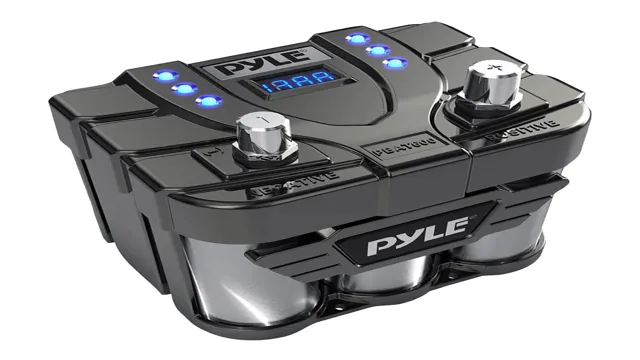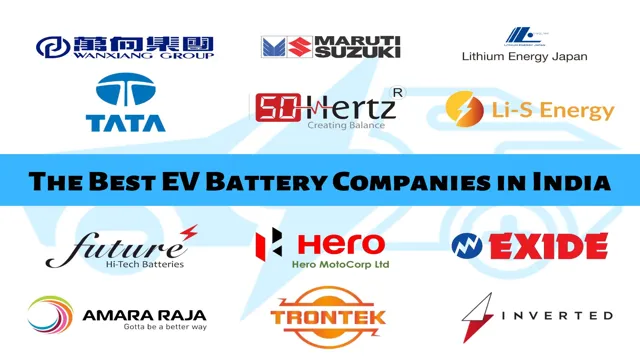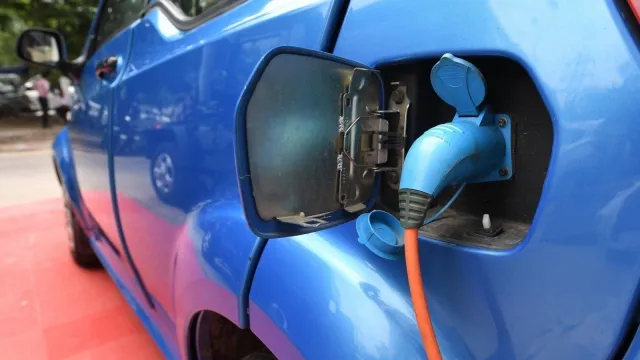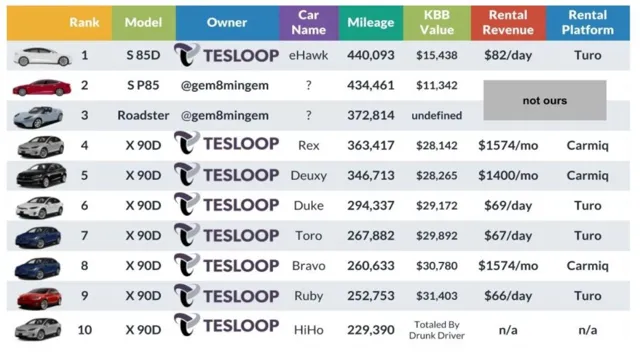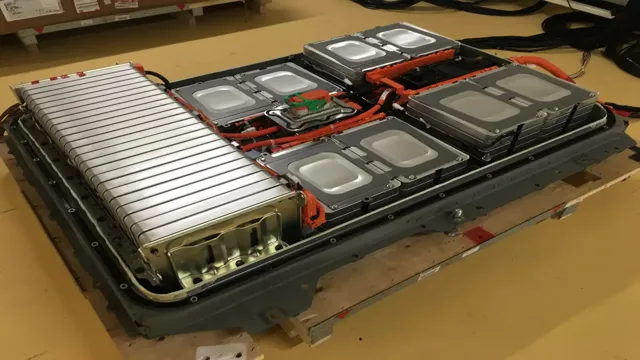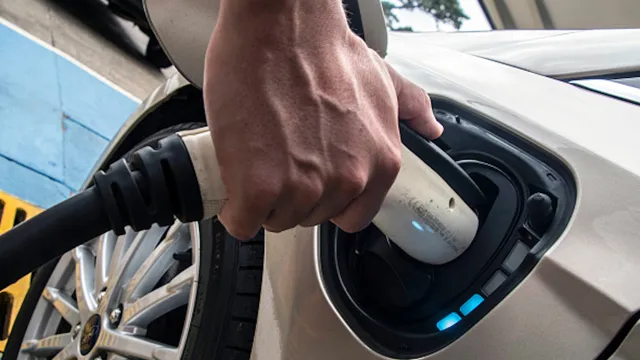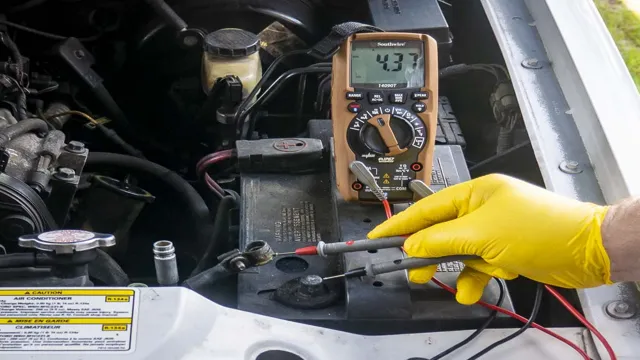Revolutionizing the Future of Electric Cars: Harnessing the Power of Capacitors for Optimal Battery Performance
You may have heard that electric cars are the way of the future. And with good reason! Not only are they more eco-friendly than traditional gas-guzzlers, but they’re also becoming more affordable over time. However, one thing that electric cars often struggle with is the battery.
That’s where capacitors come in. A capacitor is an electrical component that can store and release electrical energy. When it comes to electric car batteries, capacitors can help with short bursts of energy and improve overall performance.
Think of it like a water tower that can provide an extra boost of water pressure when needed. But why not just rely on the battery alone? While batteries are great for long-term energy storage, they can struggle with sudden surges of power. Capacitors can provide that extra oomph, allowing electric cars to accelerate quickly and maintain steady power.
So if you’re considering an electric car, keep an eye out for models that utilize capacitor technology. Your driving experience may just be smoother and more efficient thanks to this handy little component!
Why Electric Cars Need Capacitors
Electric cars are the future, and they use batteries to store energy that powers electric motors. However, these batteries have limitations, and that’s where capacitors come in. Capacitors are electrical components that can quickly store and release energy.
Electric cars need capacitors to complement their batteries because capacitors can provide a burst of energy to assist the battery when needed. They can also recover energy from regenerative braking, the process of converting the vehicle’s kinetic energy into electricity. Using a capacitor in an electric car can improve its overall performance, as it can quickly deliver the energy needed to accelerate or climb a hill, making the ride smoother and more efficient.
By using capacitors and batteries together, electric cars can become more practical and appealing to consumers, which can ultimately contribute to a more sustainable and environmentally friendly future.
Efficiency improvements
Electric cars are becoming more and more popular due to their environmental friendliness and efficiency. However, they still have a long way to go in terms of improving their speed and range. One solution to this issue is the use of capacitors in electric cars.
Capacitors can store and release energy much faster than traditional batteries. By adding capacitors to the car’s electrical system, it can improve the efficiency of the regenerative braking system and reduce the energy lost during braking. This translates to a longer range for the car and a faster acceleration time.
Capacitors can also help reduce the size and weight of the battery, which can lower the overall cost of the car. In summary, capacitors are an essential part of the electric car’s future as they provide a more efficient way to store and release energy, resulting in a longer range and faster acceleration.
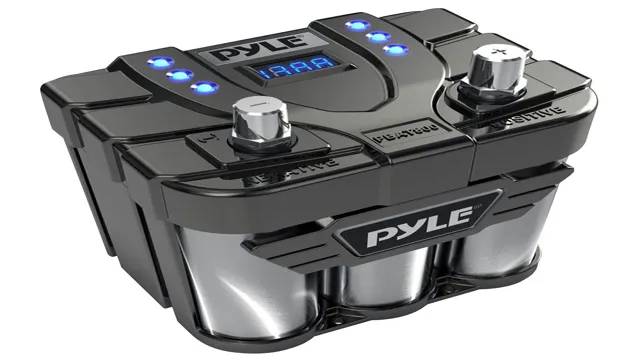
Regenerative braking
Regenerative braking is a key feature in electric vehicles, allowing for energy to be recovered during braking and stored for later use. However, this process can result in significant amounts of energy being sent back into the battery, leading to issues such as overheating and potential damage. That’s where capacitors come in.
By installing capacitors in electric cars, excess energy from regenerative braking can be quickly and safely stored and released when needed, preventing damage to the battery and maximizing the efficiency of the vehicle. Think of it like a water balloon – the battery is like a filled balloon, and the capacitor is like an empty one waiting to be filled. As water flows from the filled balloon into the empty one, the pressure is equalized, preventing the filled balloon from bursting.
In the same way, capacitors prevent the battery from becoming overloaded with excess energy, allowing for a smooth and efficient ride. So, while you may not see them directly, capacitors play a crucial role in the operation of electric cars and are a key factor in their success.
Reducing strain on the battery
One of the biggest challenges in electric cars is reducing the strain on the battery. To do this, electric cars need capacitors. Capacitors store and release electrical energy quickly, which takes the pressure off the battery.
This is especially important during occasions when the electric car demands a lot of power in a short amount of time. Without capacitors, the battery would have to work harder, reducing its overall lifespan. Think of it like a gas tank and a fuel pump.
The fuel pump rapidly delivers gasoline to the engine, reducing the strain on the tank. Capacitors do the same thing for electric cars, storing and releasing energy as needed. This not only extends the life of the battery but also improves the overall efficiency of the vehicle.
With the use of capacitors, electric cars can travel further and faster without sacrificing performance.
What is a Capacitor?
An electric car battery capacitor is an essential component of an electric vehicle. It stores electrical energy and releases it when the vehicle requires additional power, functioning as a backup to the main battery system. A capacitor consists of two metal plates separated by an insulating material, which stores an electrical charge when connected to a power source.
When the vehicle requires additional power, the capacitor releases the stored energy, providing a quick burst of power. Capacitors are also utilized in hybrid electric vehicles to buffer the main battery, prolonging its lifespan by limiting the amount of current it has to produce. In summary, the electric car battery capacitor plays a vital role in providing an efficient and reliable source of power to electric vehicles.
Definition and basic function
A capacitor is an electronic component that stores energy in an electric field. It consists of two conductive plates separated by an insulating material and is used in electronic circuits for various purposes such as filtering, decoupling, smoothing, and signal coupling. Capacitors are classified into different types such as electrolytic, ceramic, film, tantalum, and others based on their construction and application.
The basic function of a capacitor is to store and release electrical charge at a specific rate and frequency, which makes it an essential component in electronic devices. Its operation can be compared to that of a rechargeable battery which accumulates charge and releases it as per the requirement. Capacitors come in different sizes and capacitance values and are used in a variety of applications ranging from audio amplifiers to power supplies, from computers to automobiles, and from cameras to medical equipment.
Understanding the different types of capacitors and their functions can enable us to choose the right one for a specific application.
Types of capacitors used in electric cars
A capacitor is a device that stores electrical energy in an electric field. It consists of two conductive plates separated by a non-conductive material known as the dielectric. The capacity of a capacitor is determined by the surface area and the distance between the plates.
Capacitors are widely used in electric cars, where they play a vital role in managing the flow of electrical current throughout the vehicle. There are several types of capacitors that are used in electric cars, including electrolytic capacitors, ceramic capacitors, tantalum capacitors, and film capacitors. Each type of capacitor has its unique characteristics and is used in different applications.
Understanding the different types of capacitors used in electric cars is essential for anyone interested in the functioning of these eco-friendly vehicles.
Benefits of Using a Capacitor in Electric Cars
The use of a capacitor in electric cars can provide numerous benefits. Despite the rise of electric cars over the years, they still face the challenge of limited battery life, especially when it comes to long distance travel. This is where capacitors come in.
Essentially, when a car brakes, its kinetic energy is converted to electrical energy, which is then stored in the car’s battery or capacitor for later use. Capacitors are designed to charge and discharge much more quickly than batteries, providing a quicker source of power to the car’s electric motor when needed. This can lead to a significant increase in the car’s acceleration and overall performance.
Additionally, capacitors are highly durable and can withstand high current and voltage levels, making them ideal for use in electric cars. All in all, the use of a capacitor in electric cars can provide not only improved performance, but also better energy efficiency and a more sustainable future for transportation.
Faster charging times
Capacitor, Electric Cars, Charging Times If you’ve been considering purchasing an electric car, you might have heard about using capacitors as an alternative to traditional batteries. The benefits of using a capacitor in electric cars are numerous, but one of the most significant advantages is faster charging times. Unlike conventional batteries, capacitors can charge and discharge much more quickly – eliminating the need for long charging times.
This is because capacitors can store and release energy at a higher rate, allowing them to charge and discharge almost instantly. This means that with a capacitor, you can charge your electric car in just a matter of minutes, compared to several hours with a traditional rechargeable battery. By using a capacitor in an electric car, you can enjoy faster charging times, which not only saves you time but also gives you more freedom to use your vehicle.
So, if you’re looking for an efficient and time-saving alternative to batteries, consider opting for a capacitor-powered electric car.
Increased range
One of the many benefits of using a capacitor in electric cars is increased range. Capacitors can store and discharge energy quickly, making them ideal for providing short bursts of power to the car’s motor. This translates into faster acceleration and better performance overall.
Additionally, capacitors can be charged and discharged more times than traditional batteries, which means they can be used more frequently without needing to be replaced. This, in turn, leads to longer overall battery life and increased range for the vehicle. It’s like having a water bottle that can be refilled many times versus a disposable plastic bottle that can only be used once.
Overall, incorporating capacitors into electric cars is a smart move for manufacturers looking to improve efficiency and performance while also reducing the environmental impact of their vehicles.
Improved performance
One of the major benefits of using a capacitor in electric cars is an improved performance. Unlike traditional batteries, capacitors can quickly discharge and recharge, providing a surge of energy that can be harnessed for quick acceleration and high-speed driving. This is particularly beneficial for electric vehicles that are designed for racing or sport driving, where fast acceleration and nimble handling are crucial.
Additionally, capacitors can be used in conjunction with batteries to improve overall efficiency and range, by supplementing the power output of the battery during high-demand situations. Overall, the use of capacitors in electric cars can greatly enhance the driving experience, making electric vehicles more competitive with their gas-powered counterparts on the road. So, if you’re looking for a vehicle that offers both eco-friendliness and high-performance, an electric car with a capacitor might just be the way to go.
Conclusion
In conclusion, the electric car battery capacitor is the superhero of the electric car world. Just like Superman’s cape helps him fly and save the day, the battery capacitor gives the electric car the power it needs to zoom down the road while saving the planet. It may not wear a flashy outfit, but this unassuming piece of technology is the key to a sustainable and electrifying future.
“
FAQs
What is an electric car battery?
An electric car battery is a rechargeable battery used to power the electric motor of an electric vehicle.
What are the benefits of using an electric car battery instead of traditional combustion engine technology?
The benefits of using an electric car battery include lower emissions, lower fuel costs, and a smoother and quieter driving experience.
What is a capacitor in an electric car?
A capacitor is an electronic component that stores electrical energy and is used in electric cars to provide additional power during acceleration and to help regenerative braking.
How do electric car batteries compare to traditional car batteries?
Electric car batteries typically have a larger capacity and longer lifespan than traditional car batteries, but they also require more specialized maintenance and can be more expensive to replace.
